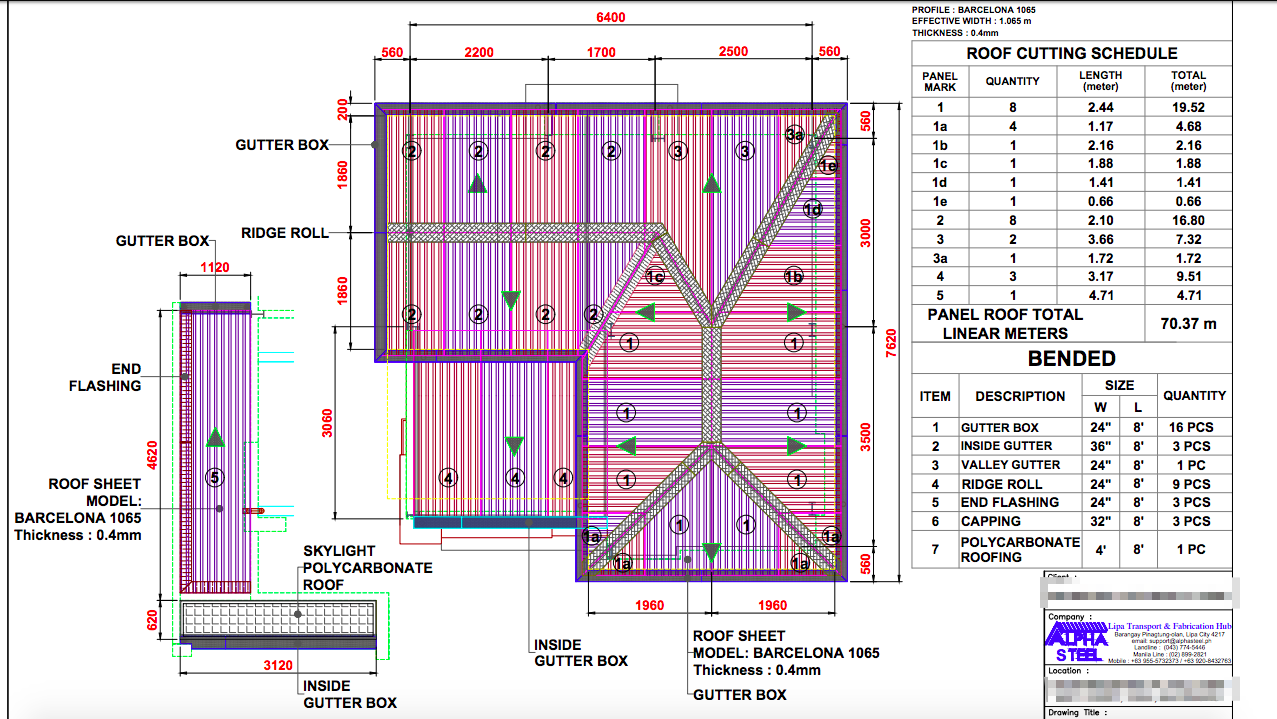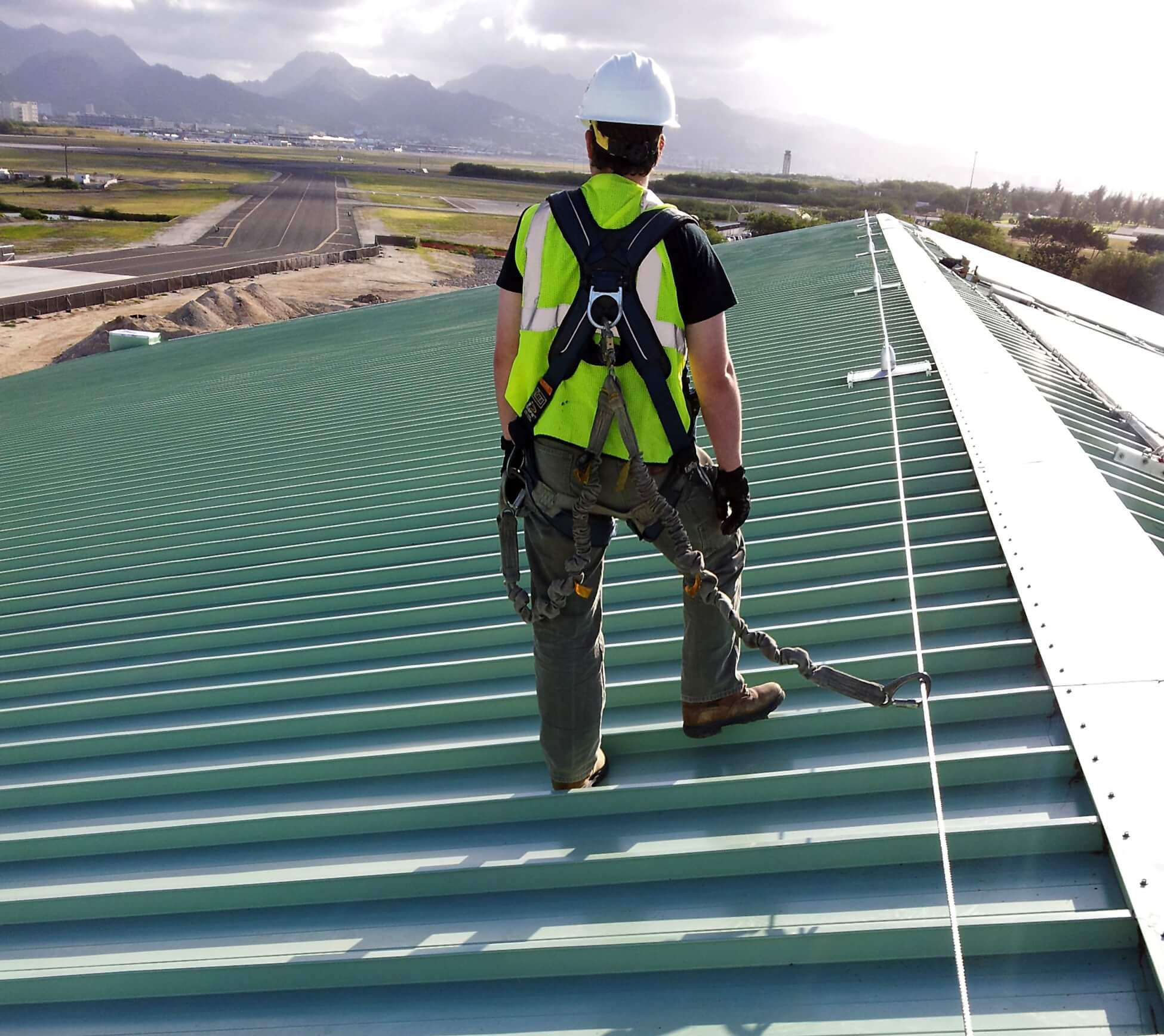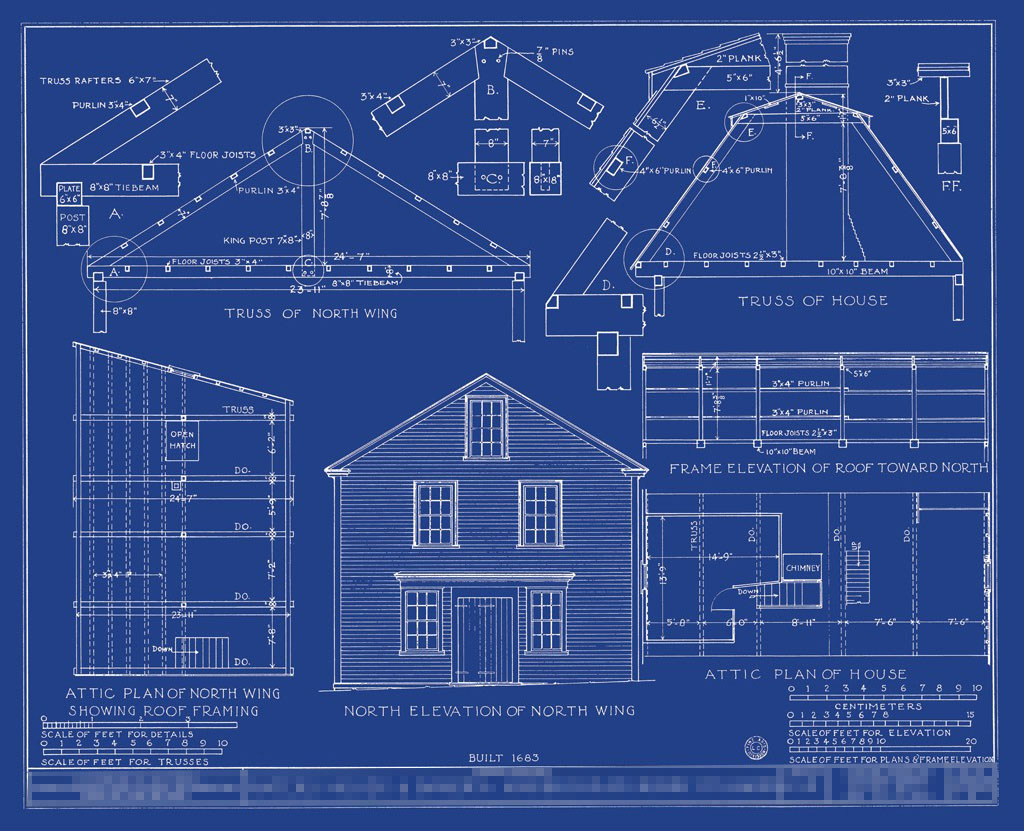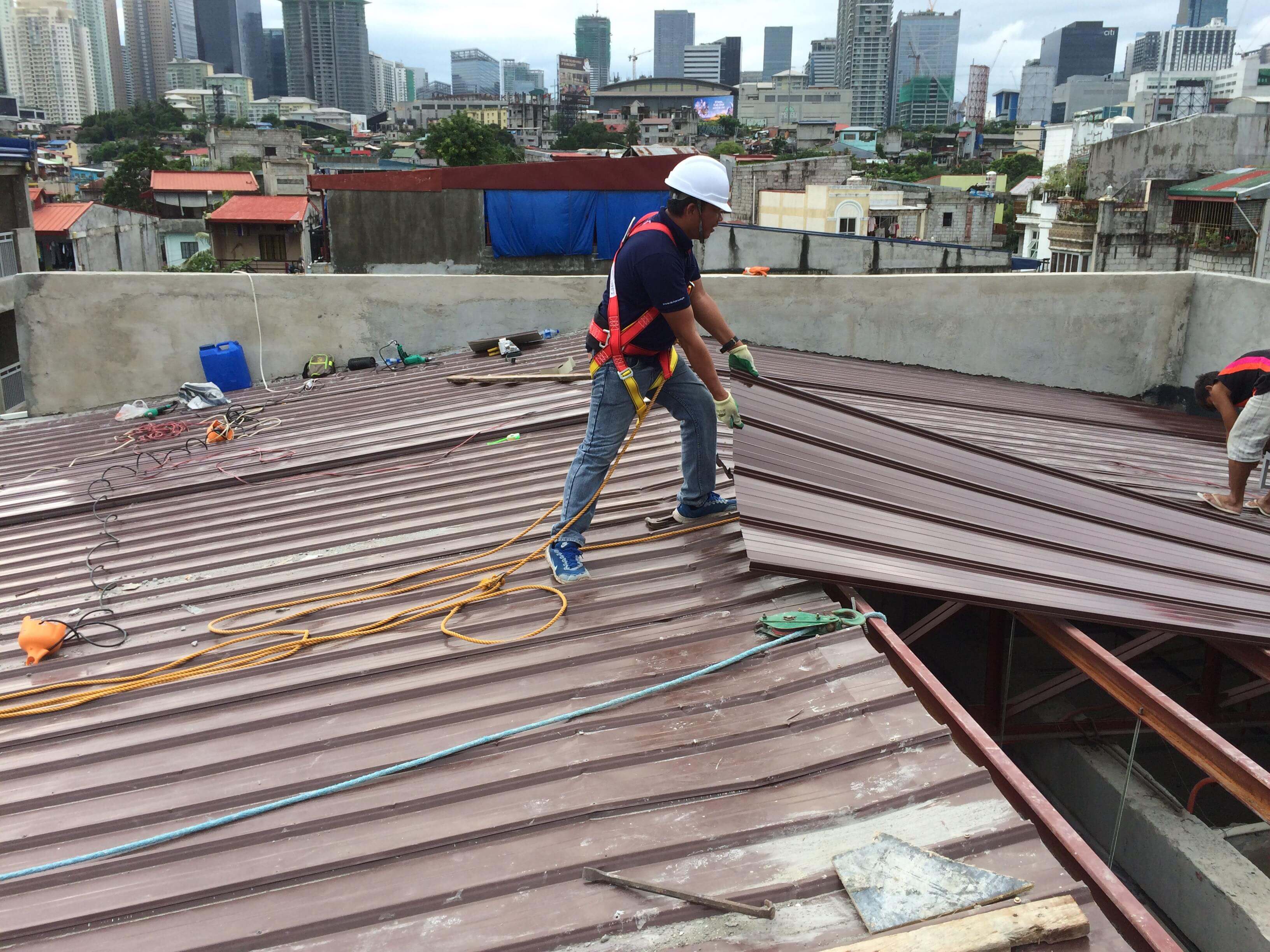Roofing Contractors Explored
Roofing contractor is a type of subcontractor that specializes in roofing. They mostly deal with installing different kinds of roofing systems around the community. Moreover, these companies hire roofers as someone who does the actual work in building roofs. Aside being called as “roofers”, they are sometimes referred to as roof carpenters or roof mechanic. In the Philippines they are usually referred to as “Latero”.
Cost of Hiring One
So you have your next roofing project and in need of subcontracting it to an expert. The primary question is, “How much is it to hire a roofing contractor?”. There are various factors affecting the overall labor cost when it comes to roofing. Check out our blog about the cost of roofing installers by clicking on the link.
Looking for a Roofing Supplier? Contact us for a free quotation of supplies and labor. Send us an SMS
Expectation in Hiring One
With relation to the roles and responsibilities, they are not limited to installing the actual material. They are in charge for the whole process of completing the roofing system. This ranges from estimating, ordering, transporting and installing the roofing materials. Before the installation phase, there are documents that are expected to be shown by the roofers. These documents can help the homeowner or the general contractor have a mindset on how the project will be done.
1. Project Quotation
The initial task is to come up with an agreement on the scope of work needed to be done by the roofing contractor. After that has been established, it is the roofer’s job to give a quotation or the cost for the completion of the project. Various contractors uses different format but the objective of the document must still be the same. That is to clearly indicate how much the project will cost and gives a thorough breakdown of the list.
We will give an example through our sample quotation. As you can see, it is essential to define how much the material and the labor will cost. It also tells the scope of work that are to be done by the contractor. Moreover if the project is big, we try to further subdivide it into different sections (e.g. Front House, Garage, Rear House). This will indicate what part of the whole project will be more expensive.
2. Roofing Plan
The roofing layout is directly related to the project quotation. While the project quotation defines the list of materials to be bought, the roofing plan depicts how the materials will be installed. It attempts to draw out what particular panels belong to a specific section of the house. It even drills down from the number of the panels as well as their designated lengths. Moreover, it also includes the necessary roofing accessories to be included and where it will be placed. Generally speaking, this document shows how the project will be tackled on an installation perspective.
For us to be able to explain it precisely, we again provided an example. The figure shown is an example of a roofing plan. Based on the figure, it heavily relies on the dimension of the structure. Think of this as an instruction manual for a children’s toy. You can clearly see what part goes to where. Lastly, it also depicts how a specific panel will be installed based on the roof slope. This can either be horizontally or vertically.
3. Job Schedule
The last document simply tells the period of time before the installation to be finished. It gives homeowners an idea how long the project will be done. This is also an opportunity for the contractor to estimate the number of workers he needs based on the required time of completion. Moreover, it also breakdowns what part of the roofing system will take the longest time.
10 Tips on Hiring a Roofing Contractor
There are a lot roofing contractors out there and picking the right one poses a challenge. That is why in this section we try to give out tips in finding the right one. We will also give some guide questions that you can directly ask given a specific tip.
1. Check for Company Profile
It is important to always verify the roofing contractor. Check their business permits or licenses and office address. If possible try to visit their office address and talk a staff about their services. Important questions to ask are:
- How long has the company been existing?
-
Where are your business permits?
-
What type of roofing services do you offer?
2. Ask for Customer Reviews
Another method to verify the contractor is to look for homeowners who have previously dealt with them. This is also another way of validating the reputation of the roofer. Moreover, you can get unbiased reviews while doing this. Here are some questions you can ask to the referred customer.
-
What type of service did the roofer did for you?
-
Did they deliver an exemplary, average or mediocre type of service?
-
Given the opportunity, would you hire them again?
-
Was the price reasonable given their output for the project?
3. Finding the Reasonable Price
Try to contact multiple roofing contractors and compare their differences. Be wary, that the lowest bidder might not be the best one for the job. Though that the project cost is a significant aspect in decision making, try to factor in different elements(e.g. Reputation or Customer Reviews). If you have no idea for the cost of roofing installers, we’ve made a dedicated blog post about the cost of roofing installers. Here are some guide questions you can ask the roofing contractor with relation to the costing.
- What is the total cost for the whole project?
-
Will it cover for both the materials and the labor?
-
Do you have any terms with the payment schedule?
-
Will you require an initial payment first before the start of the project?
4. Inquire about Warranties
When taking about warranties, there are actually two aspects to consider. The first is for the roofing materials. This is usually between the roofing contractor and the roofing supplier. It is focused on how long the materials will last before any damages can occur. The second is the warranty covered by the workmanship of the contractor. This covers the actual labor done by the contractor during the installation phase. Regardless of the quality of the materials, if there are any leaks or damages inside the structure, the project is deemed to be a failure.
-
What does your warranty covers?
-
How many years does the materials covers?
-
Do you offer maintenance or “backjobs” when problem arrises?
5. Establish the Project Scope
Before hiring a contractor, it is important to define the scope of project to be done. Defining tasks will benefit both parties since it clearly states the agreement. This is essential since the term “roofing system” can mean a lot of things. Some common concerns are the following:
-
Is the roof trusses included in the project contract?
-
How about downspouts? Are they also included?
6. Agree on Materials Specifications
Being clear on what type of materials that will be used is an important task as well. This allows you to hire the appropriate contractor. Moreover, being precise with the specifications will allow the contractor to generate an accurate quotation when looking for the roofing materials.
-
What type of materials do you usually install?
-
Do you specializes in shingles, roofs or clays?
-
What are their specifications? What color? What is the gauge number?
7. Plan the Job Schedule
Time is also an important aspect to consider when hiring a roofing contractor. This is particularly helpful when the you are concern with the timeline of the project. This also relates to the how fast the contractor can work. Some guide questions you can ask to the contractor:
-
How soon can you start with the project?
-
When is the estimated date of the project completion?
8. Free Quotation
Hire someone who is willing to give a free quotation. In the field of roofing contracting, we usually generate it free of charge. This allows you to compare multiple quotations without having to spend a single dime.
-
Do you charge for a quotation?
-
How soon can you give out the quotation?
-
Does the quotation includes the materials and the labor cost?
9. Communication is a Signaling Factor
Sometimes simply talking to a member of the company, you are able to determine what type of business they are and the level of expertise they have. This might even reflect on how they work on your project. Some questions you can reflect on are:
-
Do they usually return my inquiries? How soon?
-
How do they respond to my concerns? Is the answer backed up by a valid technical reference?
10. Relationship with the Roofing Supplier
Lastly, these contractors often deal with their suppliers. Being able to tell their relationship can give you additional insight. If possible try to contact the supplier and ask for a feedback. Here are some questions you can ask the roofing supplier.
-
What can you tell about contractor X?
-
Were there any issues when dealing with them?
5 Benefits of Hiring a Roofing Contractor
1. Safety
Accidents and injuries are very common when installing roofing systems. Metal roofing panels can be dangerous when handled improperly. That is why roofing contractors often are equipped with safety gears. Moreover, working on a structure of more than 15-feet high is extremely risky. Having a professional that is knowledgable with safety measures reduces the risk of any accidents from happening.
2. Lower Overhead Cost
One major concern after buying the materials is transporting them. Especially in metal roofing, panels can span up to 30-feet. Transporting these materials can pose a challenge if you are going to do it yourself. Having a roofing contractor address these types of issues rids you of having to deal with them.
3. Expertise on the Subject Matter
Being in the industry for several years, these contractors knows the ins and outs when it comes to roofing installation. This means that they can efficiently accomplish the project with minimal or zero mistakes. They are also equipped with modern techniques that can be helpful for the project. This eventually reduce the risk of any damages to the roof.
4. Covered Warranties
These roofers usually offer warranties to their workmanship. Meaning regardless of any issues that arrises within the time frame, the contractor is held responsible. If there are any problems with the roofing, they are suppose to inspect and repair it with free of charge.
5. Getting the Right Materials
These contractors usually know where to get good quality roofing materials. Depending on the project, selecting the appropriate material can be a challenge. That is why having someone to consult with what type of material is the best can be beneficial. Some common concerns are:
-
What is the recommended thickness for metal roofing?
- What type of roofing flashing should I apply?
- Should I use rib or corrugated type of metal roofing?







